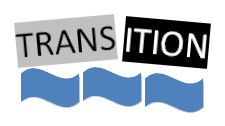 Have you ever read a book where the scene is progressing nicely, things are happening, people are talking and then … you’re somewhere else. From one paragraph to the next, you’ve gone from a moonlit beach to a crowded avenue. You were just starting to understand the relationship between John and Marsha and now suddenly you’re introduced to Tony.
Have you ever read a book where the scene is progressing nicely, things are happening, people are talking and then … you’re somewhere else. From one paragraph to the next, you’ve gone from a moonlit beach to a crowded avenue. You were just starting to understand the relationship between John and Marsha and now suddenly you’re introduced to Tony.
“Marsha, hello,” John called brightly. He was obviously pleased to see her. His eyes shone at her with reflected moonlight.
“Hello, John.” Her voice was low, cautious. Her eyes darted nervously about the deserted beach, and she caught her lower lip in her teeth.
“How are you?” he asked as he stopped in front of her.
Tony cursed the Black Friday crowds while he shouldered his way down the sidewalk. He hated shopping.
Does this make you do a double-take? Do you have to go back and re-read just to make sure you didn’t miss something? In recent months I’ve read more than a few books that had trouble with transitions. Now I’ve yammered on before about how, when we write, we need to make sure the reader is flowing along with us effortlessly. Yes, there may be drama in the story and yes, there may be tension, but there shouldn’t be any of that in the reader’s efforts to follow the story. The reader may need to work at piecing out the story line in a thriller, may need to tease out the truth from the lies and misdirections in a mystery, but they should not have to work at following the writing. In my opinion, if the reader does have to work at that, we haven’t done our job well at all. Continue reading “Stop the Chop: Writing Smooth Transitions”

 I attended elementary school in the seventies. As a kid, I knew what hippies were and one of our teachers even explained communes to us too, or more specifically, her opinion on the breakdown of communes. The teacher told us that the ideology behind communes – everyone contributing and helping each other – was a unique concept but ultimately the system would always break down. According to her, problems always arose and the lifestyle built on humility and benevolence would fall apart. They didn’t all fall apart though. One of the more famous is Farm Community Commune in Tennessee. It’s sometimes referred to as the Mundo sister’s commune. It’s still active, but they had to make changes too.
I attended elementary school in the seventies. As a kid, I knew what hippies were and one of our teachers even explained communes to us too, or more specifically, her opinion on the breakdown of communes. The teacher told us that the ideology behind communes – everyone contributing and helping each other – was a unique concept but ultimately the system would always break down. According to her, problems always arose and the lifestyle built on humility and benevolence would fall apart. They didn’t all fall apart though. One of the more famous is Farm Community Commune in Tennessee. It’s sometimes referred to as the Mundo sister’s commune. It’s still active, but they had to make changes too.